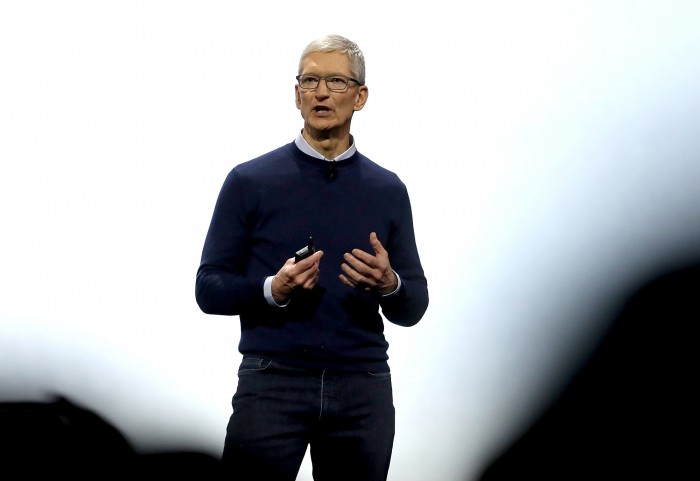Apple Finally Admits It Is Pursuing Technology for Self-Driving Cars

It is no secret that Apple has been sniffing around the automotive sector for several years. But now its CEO, Tim Cook, has finally broken his vow of silence on the topic.
In an interview with Bloomberg, Cook has explained that he sees “three vectors of change” in the automotive sector—in the shape of autonomy, electrification, and ride-hailing. Combined, he says, they will bring about “a major disruption” in the industry. So far, so insightful, Tim.
But he did go on to explain that Apple is specifically “focusing on autonomous systems” for cars. “It’s a core technology that we view as very important,” he said. “We sort of see it as the mother of all AI projects. It’s probably one of the most difficult AI projects actually to work on.”
In the past, Apple has been considered to be somewhat of a laggard in the race to develop its machine-learning chops. It failed to capitalize on its early successes with Siri, and most of its later consumer products to use AI still play second fiddle to those produced by Google and Facebook. But the recent appointment of the firm’s first AI director, Ruslan Salakhutdinov, suggests that could change.
Cook’s description of Apple’s work on autonomous systems in the automotive sector appears to be deliberately vague. He says that the technologies that it’s working on may include self-driving cars, but he enigmatically also says that there “are others” that he opts not to expand on. What a tease. Nonetheless, Apple is clearly working with sensors and AI software for autonomous vehicles—hell, we’ve even seen them on the roads already.
Interestingly, though, Cook doesn’t commit to what the result of all this secretive work from Apple might look like. “We’re not really saying from a product point of view what we will do,” he explained.
That makes the whole Bloomberg interview rather at odds with what he told MIT Technology Review just last week. Then, he scorned other tech firms for selling “futures” rather than real products. “We are not going to go through things we’re going to do in 2019, ’20, ’21,” he said. “It’s not because we don’t know that. It’s because we don’t want to talk about that.”
Clearly that’s not the case when it comes to autonomous cars.
(Read more: Bloomberg, “Tim Cook: Technology Should Serve Humanity, Not the Other Way Around,” “Appearances Suggest That Apple’s Autonomous-Car Endeavor Is Lacking,” “How Might Apple Manufacture a Car?”)
Keep Reading
Most Popular
Large language models can do jaw-dropping things. But nobody knows exactly why.
And that's a problem. Figuring it out is one of the biggest scientific puzzles of our time and a crucial step towards controlling more powerful future models.
The problem with plug-in hybrids? Their drivers.
Plug-in hybrids are often sold as a transition to EVs, but new data from Europe shows we’re still underestimating the emissions they produce.
Google DeepMind’s new generative model makes Super Mario–like games from scratch
Genie learns how to control games by watching hours and hours of video. It could help train next-gen robots too.
How scientists traced a mysterious covid case back to six toilets
When wastewater surveillance turns into a hunt for a single infected individual, the ethics get tricky.
Stay connected
Get the latest updates from
MIT Technology Review
Discover special offers, top stories, upcoming events, and more.